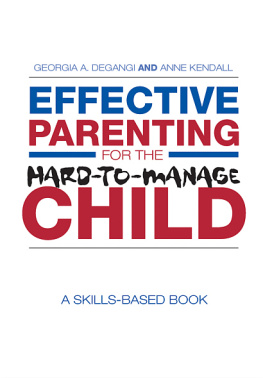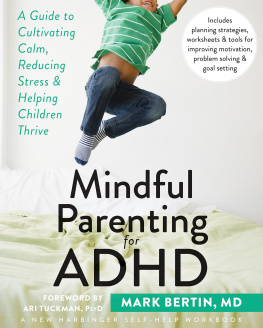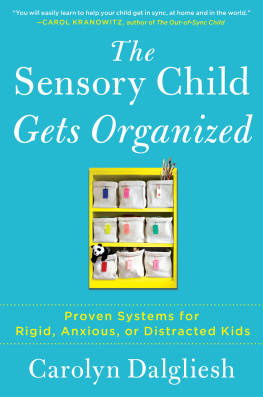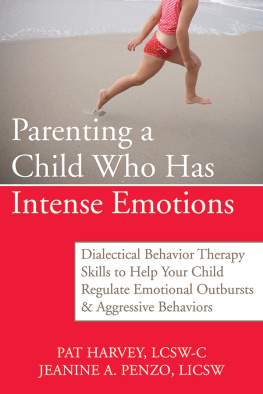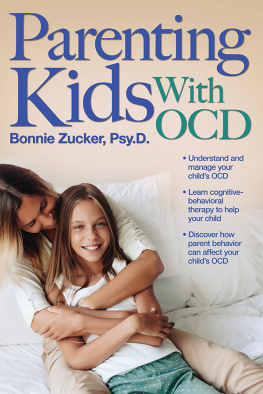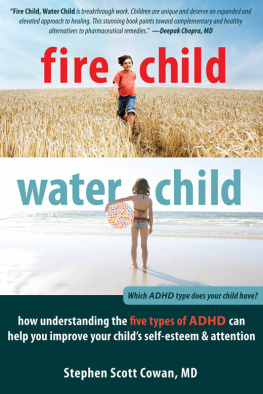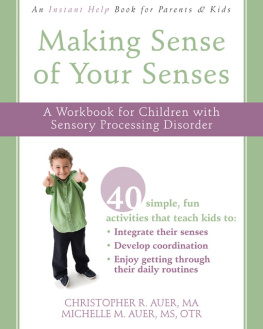EFFECTIVE PARENTING FOR THE HARD-TO-MANAGE CHILD
EFFECTIVE PARENTING FOR THE HARD-TO-MANAGE CHILD
A SKILLS-BASED BOOK
GEORGIA A. DEGANGI AND ANNE KENDALL

New York London
Routledge
Taylor & Francis Group
270 Madison Avenue
New York, NY 10016
Routledge
Taylor & Francis Group
2 Park Square
Milton Park, Abingdon
Oxon OX14 4RN
2008 by Taylor & Francis Group, LLC
Routledge is an imprint of Taylor & Francis Group, an Informa business
This edition published in the Taylor & Francis e-Library, 2011.
To purchase your own copy of this or any of Taylor & Francis or Routledges collection of thousands of eBooks please go to www.eBookstore.tandf.co.uk.
ISBN 0-203-93916-6 Master e-book ISBN
International Standard Book Number-13: 978-0-415-95546-1 (Softcover)
No part of this book may be reprinted, reproduced, transmitted, or utilized in any form by any electronic, mechanical, or other means, now known or hereafter invented, including photocopying, microfilming, and recording, or in any information storage or retrieval system, without written permission from the publishers.
Trademark Notice: Product or corporate names may be trademarks or registered trademarks, and are used only for identification and explanation without intent to infringe.
Library of Congress Cataloging-in-Publication Data
DeGangi, Georgia A.
Effective parenting for the hard-to-manage child : a skills-based book / Georgia A. DeGangi and Anne Kendall ; illustrated by Ziza Craig.
p. cm.
Includes bibliographical references.
ISBN 0-415-95542-4
1. Problem children. 2. Child psychology. 3. Behavior disorders in children. 4. Child rearing. 5. Parenting. I. Kendall, Anne. II. Title.
HQ773.D43 2007
649.154--dc22 2007019089
Visit the Taylor & Francis Web site athttp://www.taylorandfrancis.com
and the Routledge Web site athttp://www.routledge.com
Contents
Georgia DeGangi, PhD, OTR, FAOTA
Lynn Balzer-Martin, PhD, OTR
|
Acknowledgments
Many people have helped us in the writing of this book. First and foremost, we would like to thank the many children and families that we have worked with over the years. They have been our best teachers in discovering the most effective ways to help hard-to-manage children. Without them, this book would not have been possible.
Several superb mentors have been instrumental in helping us to discover new ways of working with and understanding young children. Dr. DeGangi was guided by Dr. Stanley Greenspan, child psychiatrist, who helped her in integrating sensorimotor, emotional, and developmental frame works into a holistic model of working with young children. Dr. Stephen Porges, developmental psychologist, collaborated with her in researching disorders of self-regulation in children and taught her the importance of linking theories and research with clinical approaches. Both Drs. Greenspan and Porges helped her to understand the profound effect that constitutional problems have on the childs developmental course and the parent-child relationship. Dr. DeGangi is indebted to Dr. Polly Craft who offered her the gift of discovering the special meaning that each child and parent have for one another. She was so fortunate to have worked with her in learning parent-infant psychotherapy. This book is dedicated to her memory. The work that is represented in this book is heavily influenced by the wonderful experiences she has had with these mentors. Dr. Kendall would like to acknowledge the insight, intellect, and support provided by Dr. Anne Wake during our 20-year collaboration. In addition, she would like to thank Marsha Linehan for her trail-blazing work in developing skills for helping individuals who have profound emotional dysregulation.
We have had the good fortune of working in a variety of settings that have allowed us to blossom as professionals. We would like to thank our colleagues at ITS for Children and Families, Inc. in Kensington, MD, the Kendall-Wake-Springer Group in Washington, D.C., and the Reginald S. Lourie Center for Infants and Children in Rockville, MD. They provided us with wonderful experiences that allowed us to blend knowledge of occupational therapy with clinical and developmental psychology and to blend different therapeutic perspectives including cognitive-behavioral therapy with psychodynamic approaches, exposure therapy and the power of mindfulness. It was at the Lourie Center that Dr. DeGangi learned the importance of fostering emotional health and development through the parent-child relationship and the value of early intervention and prevention in treating multi-problem families. In our current work, we are both very fortunate to be working with a sterling team of professionals at ITS for Children and Families, Inc. in Kensington, MD and the Wake-Kendall-Spring Group with whom we continue to collaborate on finding better ways to serve children and their families.
We are very grateful to T. Berry Brazelton, M.D., whose work we have greatly admired over the years. He very graciously agreed to endorse our book. Many thanks to Eliza Noyes Craig for the beautifully drawn illustrations in this book. We would also like to thank Antoine and Emily van Agtmael for their careful reading of this book from the point of view of concerned parents.
The case vignettes and examples that are described in this book are based on real clinical examples. The names and pertinent identifying information of children and their families have been disguised to protect their identities.
Last, but not least, Dr. DeGangi wishes to thank her loving husband, Robert Dickey, who endured many hours of listening to her as she formulated ideas for this book. She is so grateful for his unconditional support and encouragement for her professional endeavors. Dr. Kendall would like to thank the fabulously fit, erudite, and cute David Kendall for his thoughtful reading of this book as well as his ongoing humor and support. Her greatest happiness and pride comes from being the mother of her three children Mat, Elizabeth and Will. She wants to reassure them that they are not included in this book.
How to Use This Book
Who Should Read This Book?
We have written this book for parents of hard-to-manage children, and for the teachers and therapists who work with these families.
Do Parents Need Help?
The children described in this book are difficult for anyone to parent because they can be so intense and often uncooperative. This book will help you understand your child so that you can be caring and effective. , The Perils of Parenting, will give you an overall strategy for maintaining a close connection with your child and remind you that you only need to be a good enough parent.
Who Are the Hard-to-Manage Children?
The hard-to-manage children described in this book are all unique. However, they share in having an immature nervous system that responds to even minimal stress in an intensely reactive manner. This, in turn, makes these children vulnerable to a host of emotional, social, and learning problems. The children in this book struggle for self-control and find it hard to do what their parents and teachers ask. However, help is on the way! Our chapters describe different challenges that these children face and provide the tools you need to help them.

